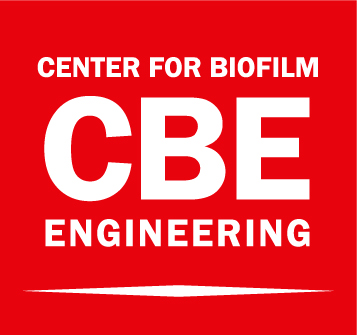Graduate Education in Health for Minority Scholars
The Graduate Education in Health for Minority Scholars (GEhMS) program at Montana State University (MSU) is designed to increase community
capacity to reduce health disparities in our state by supporting underrepresented
minority (URM) graduate students in biomedical and behavioral sciences who have strong
ties to under served Montana communities. Housed at MSU’s Center for Biofilm Engineering (CBE), the program supports new and continuing URM graduate students in MSU health
programs by facilitating opportunities to conduct community-based participatory research
on health issues in their home communities, as well as by providing academic, financial,
and social support.
Preparing for graduate education can be overwhelming. GEhMS advisors can assist in
determining if graduate school is right for you. They can help with the application
and funding process, as well as provide tutoring for challenging courses. If you are
interested in a healthcare career and your community, this program may be for you.
Program benefits and admission requirements: Read about program benefits and admission requirements in the GEhMS brochure
Application (pdf): To download and complete an application for admission, view the PDF.
Current Scholars
Violeta Nitzinger, Master's student, Health and Human Development
Esther "Tey" Silva, Master's student, Family and Community Health
*Deb LaVeaux, EdD student, Adult and Higher Education *funded via MT IDeA Network of Biomedical
Research Excellence (INBRE)
Read about the current GEhMS scholars
Graduates
May 2016
Christine Martin, Master's degree, Health and Human Development, May 2016
Ms. Christine Martin was recognized as the top graduating student in the Family and
Community Health Master’s degree program. Her thesis was titled, “Diabetes Prevention:
Understanding American Indian College Students Risk Perception and Self Efficacy Related
to Diet and Exercise Choices.” She was a co-author on Ms. Sloane Real Bird’s paper
which has been accepted for publication:
Real Bird, S., Held, S., McCormick A., Hallett, J., & Martin, C. (accepted for
publication). The impact of historical and current loss on chronic illness: Perceptions
of Crow (Apsáalooke) people. International Journal of Indigenous Health.
Ms. Martin is currently working as a research assistant for Dr. Vanessa Simonds on
an environmental health literacy project on her home reservation.
Jennifer Show, Doctorate degree, Nursing, May 2016
Dr. Jennifer Show is one of the first graduates to complete the newly accredited Doctor of Nursing Practice Degree at Montana State University College of Nursing. This clinical doctorate program affords the student the opportunity to graduate as a skilled advanced practice nurse (Family Nurse Practitioner with a solid foundation in academic excellence and leadership). While in school Jennifer was one of two students who received the Margaret Houston Voinovich scholarship for her professional clinical project focused on rural health. She was also awarded the Harold & Jessie Hudson Trust Endowment Scholarship for her Professional Project titled “Implementing an oral health tool and motivation interviewing tool to improve oral health care among Type II diabetics on a Northern Plains Reservation.” This work was carried out with her home Tribal community in Fort Belknap, Montana. In May, she was recognized by MSU’s College of Nursing with the “Outstanding Graduate Nursing Student Award.” She now works as the Diabetes Case Manager for the Healthy Heart Project serving the Fort Belknap Reservation, funded through the Department of Health and Human Services. Jennifer and her advisor, Dr. Kinion, are currently writing a manuscript based on her professional project and dissertation. In order to become certified as a Family Nurse Practitioner, Dr. Show will be taking the National Certification Exam at the end of June 2016.
May 2015
Sloane Realbird, Master's degree, Health and Human Development, May 2015
May 2014
Yanet Eudave, Master's degree, Family and Community Health, May 2014
Lidice Tobar Quezada, Master's degree, Family and Community Health, May 2014
Nathaniel "Nate" Tucker, Master's degree, Family and Community Health, May 2014
May 2013
Dayle “Candy” Felicia, Master's degree, Family and Community Health, May 2013
Contact Us
If you are considering graduate school but do not know where to start, contact us:
GEhMS
c/o Center for Biofilm Engineering
366 Barnard Hall, PO Box 173890
Montana State University
Bozeman, MT 59717-3980
Phone: (406) 994-3064
Fax: (406) 994-6098
Email: gehms@montana.edu
Web: www.biofilm.montana.edu/gehms.html
Forms
Faculty recommendation form (pdf): Please help us assess the promise and motivation of a recommended student.
Complete our faculty recommendation form* and return it to the GEhMS office (address
listed above).
*The recommendation form allows you to type directly on the pdf.
-Click the Typewriter tool at the top of the page
-Place your cursor on the lines to be completed, double click, and start
typing.
Professional Development
MSU professional development resources for graduate students (pdf)
GEhMS is funded by the National Institute on Minority Health and Health Disparities, National Institutes of Health. The program is a collaborative effort among the MSU Colleges of Engineering, Education, Health and Human Development, Nursing, and Letters and Science; MSU’s INBRE, EPSCoR, American Indian Research Opportunities (AIRO) programs and various other MSU student support programs; Little Big Horn College; Chief Dull Knife College; Fort Belknap College; Fort Peck College; Salish Kootenai College; Stone Child College; and the Crow Environmental Health Steering Committee.

